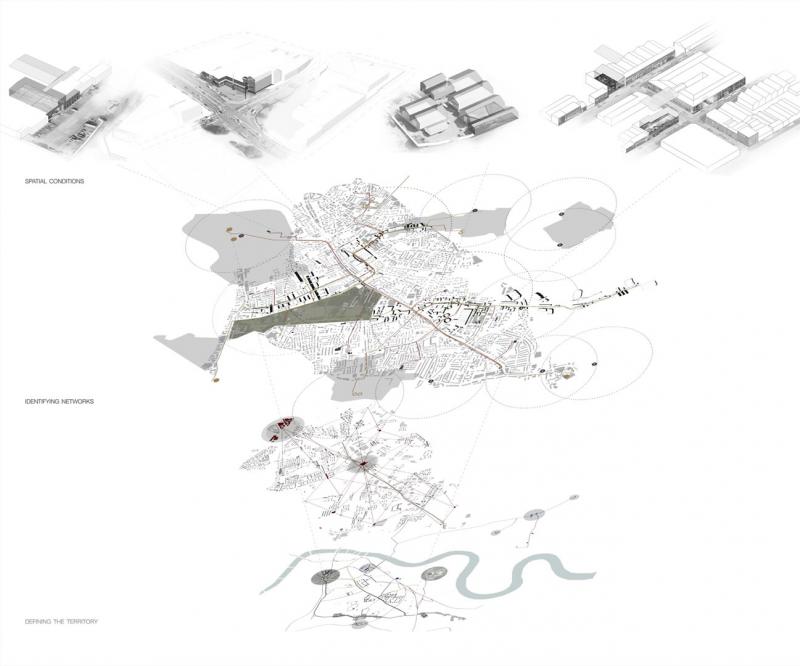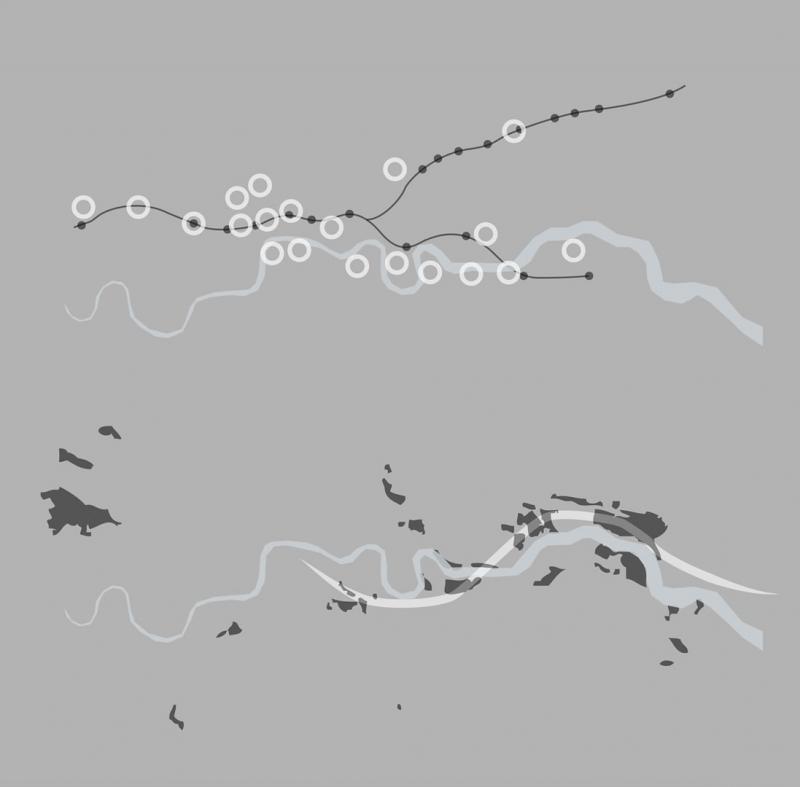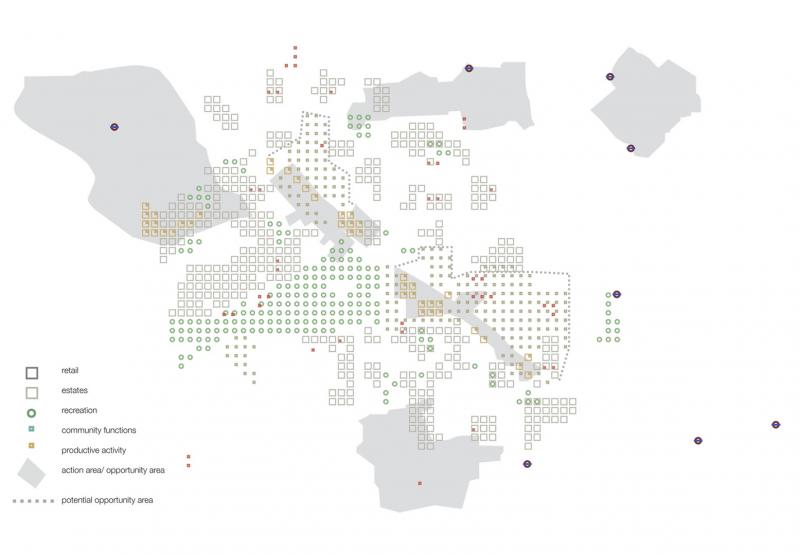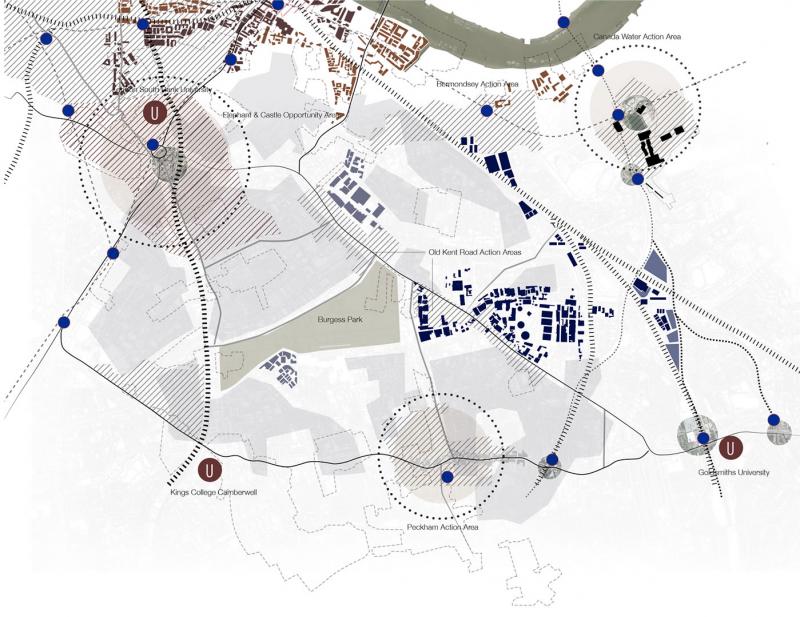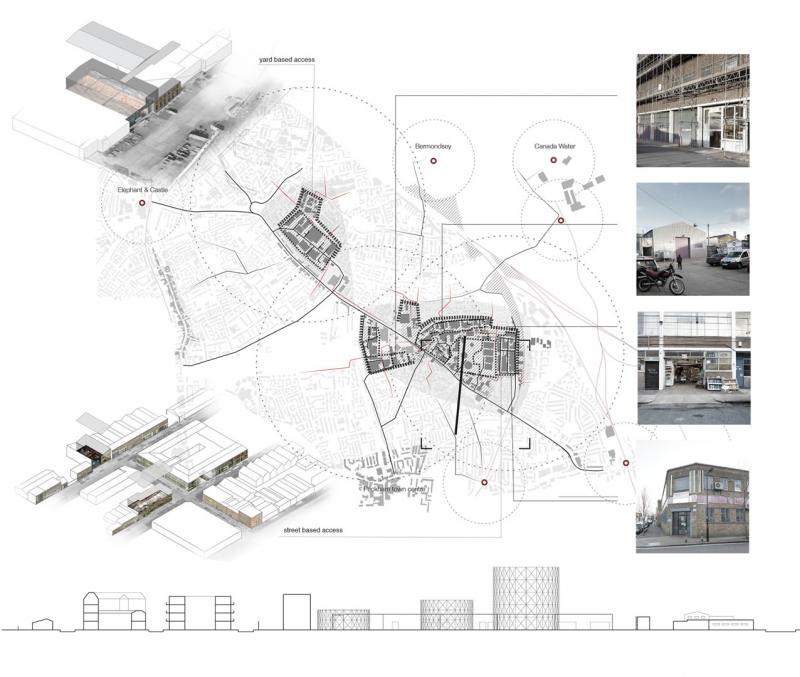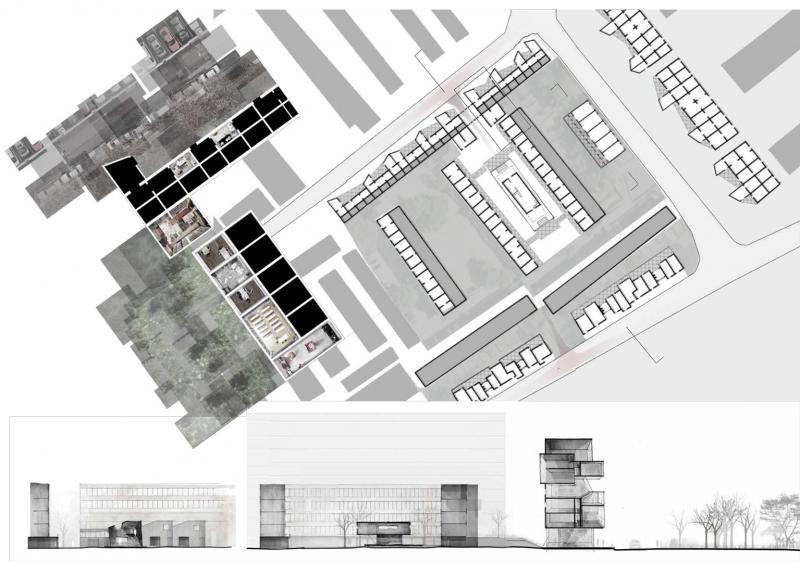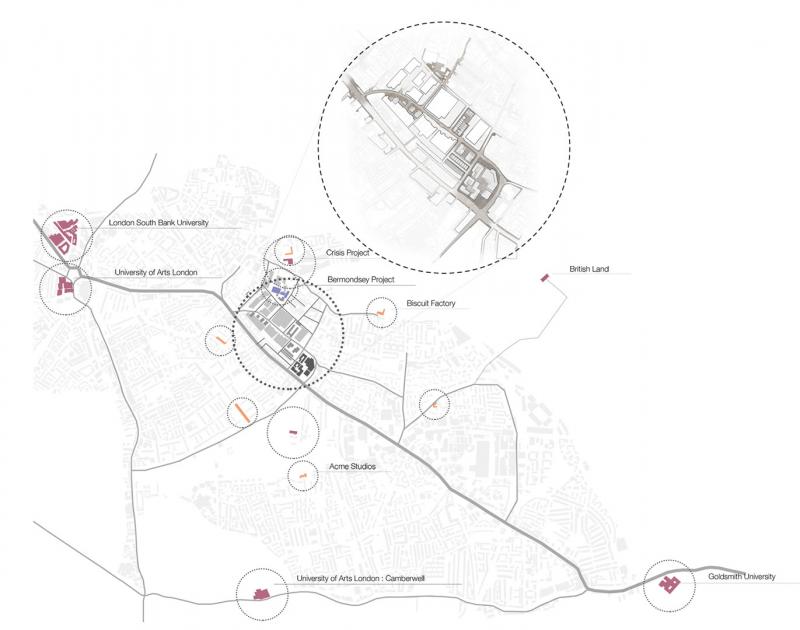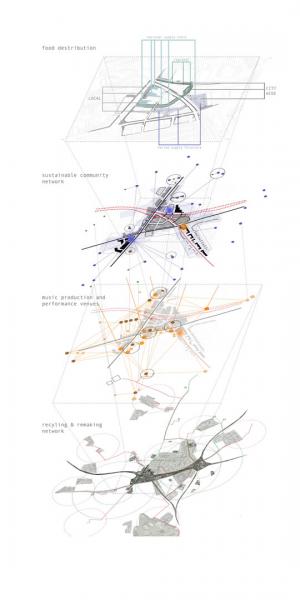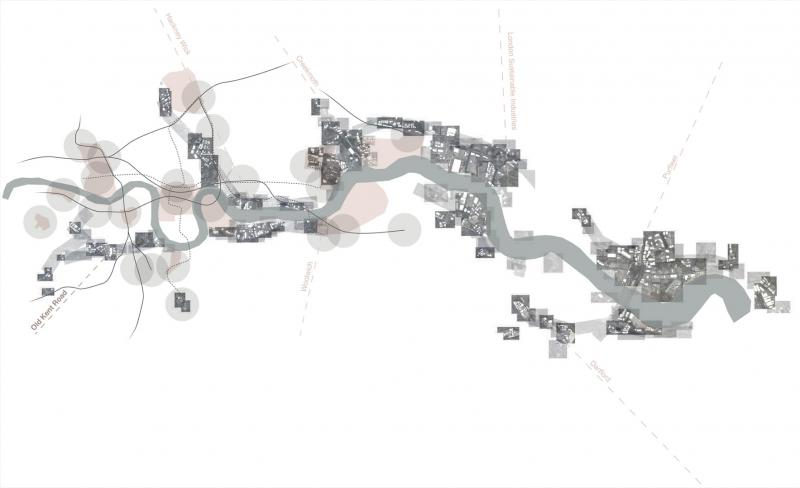Productive territory
Old Kent Road
Tutors: Jorge Fiori, Elena Pascolo, Alex Warnock Smith.
Increasing productivity, in purely economic terms, has become a central concern of urban developments in cities undergoing rapid transformation, often leading to increase in land values and expulsion of local population. To produce resilient communities it is important to articulate spatial, economic, social and cultural dimensions in a multi-scalar strategy, and to facilitate synergies between various actors.
The study area around Old Kent Road is used to test an alternative logic of transformation, owing to its particular conditions which differ from main London development trends. The study of existing productive networks supports the hypothesis that large industrial sites sustain smaller businesses, integrating local population in the productive cycle. Productivity can be enhanced by the combined action of institutions acting as learning centres for a labour force, with the rethinking of housing as a layered strategy towards urban development. Three areas of intervention are identified to develop spatial responses to these conditions, establishing new interfaces between different pieces of urban fabric. These tests can be scaled-up to reintegrate industrial land at a London scale, enabling a long-term sustainability of this fundamental network.
Groups worked on three different urban areas in the inner periphery of London, each with great potential and under strong pressure of development. The proposals test opportunities and spatial strategies for London to initiate new urban development models relevant to a shift to a knowledge-based economy. Within each study area the groups developed an argument and proposals for spatial intervention at multiple scales in a range of test sites.
Diagram
Elements of the territory 1
Defining the territory of OKR
Strategic industrial land
OKR 1
Tesco Mandela Way
OKR 4
Secondary network of strategic industrial land

